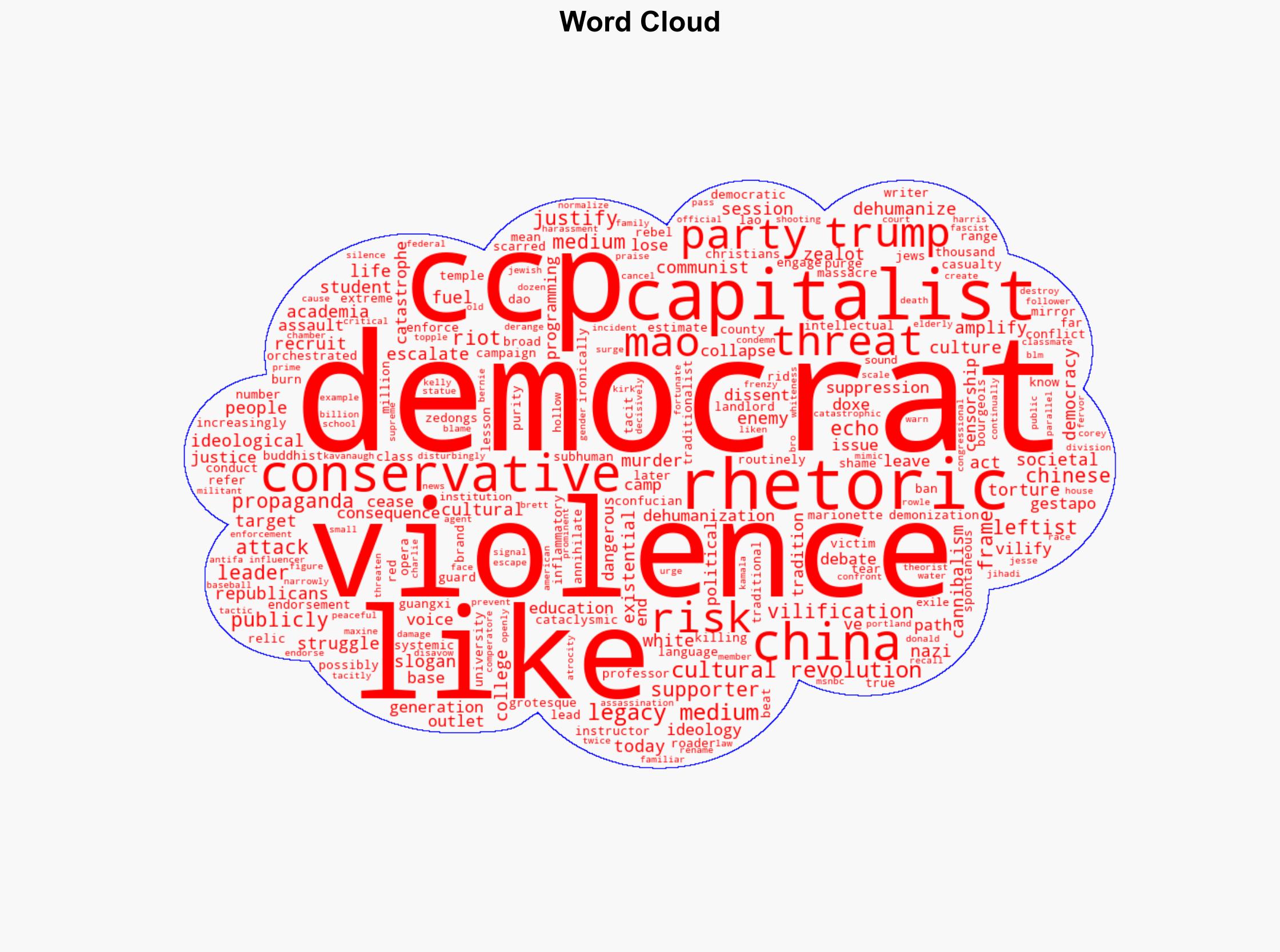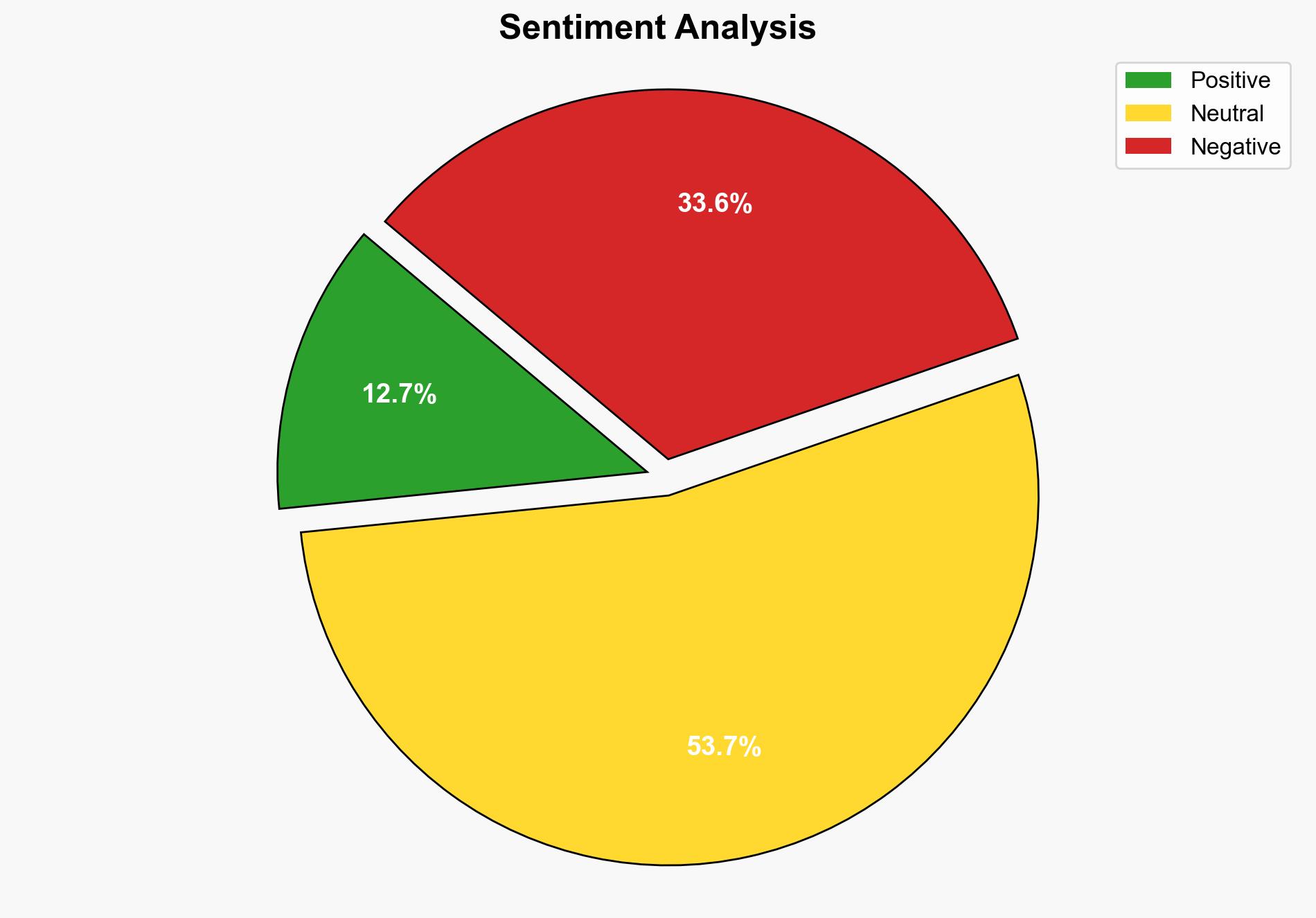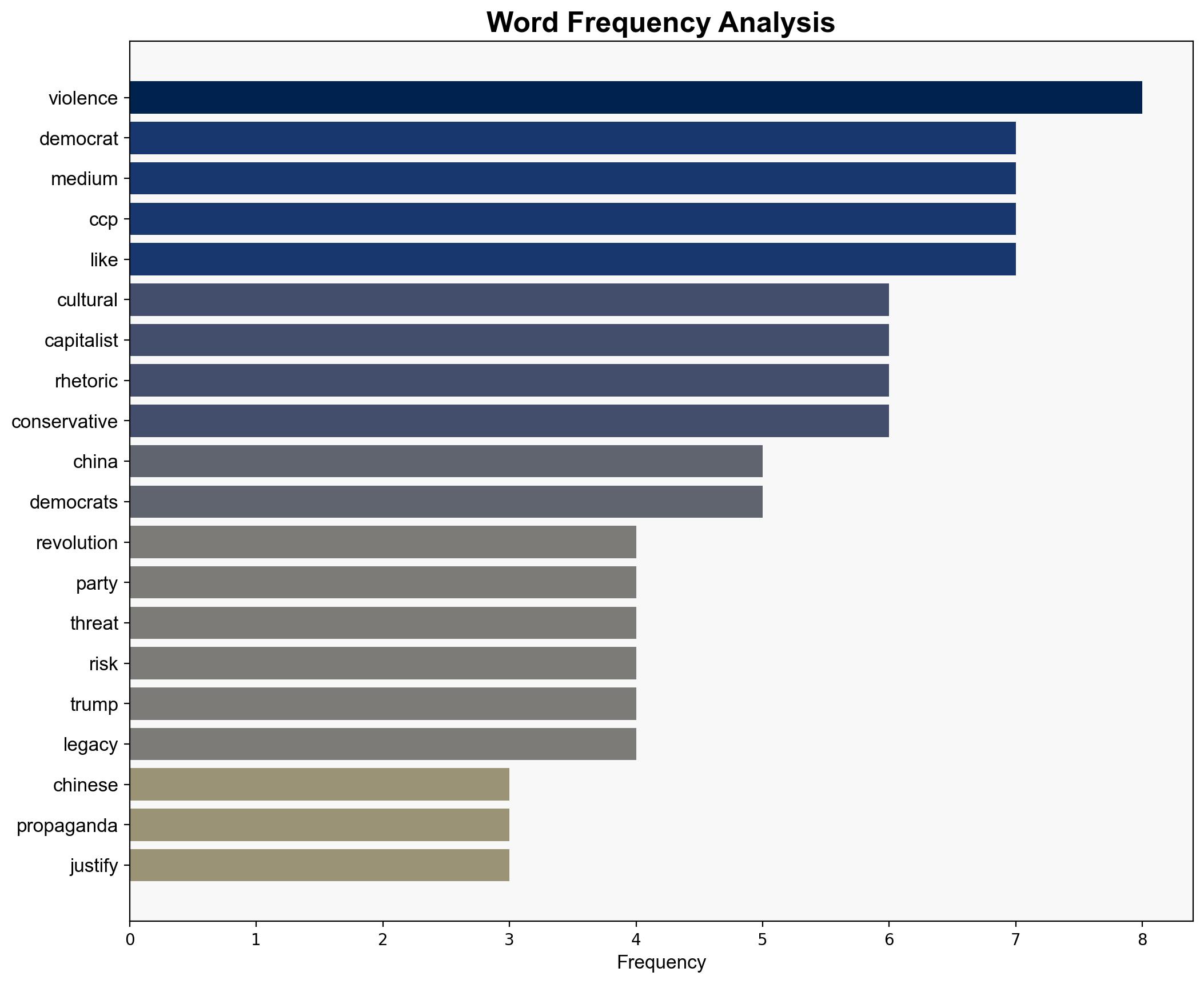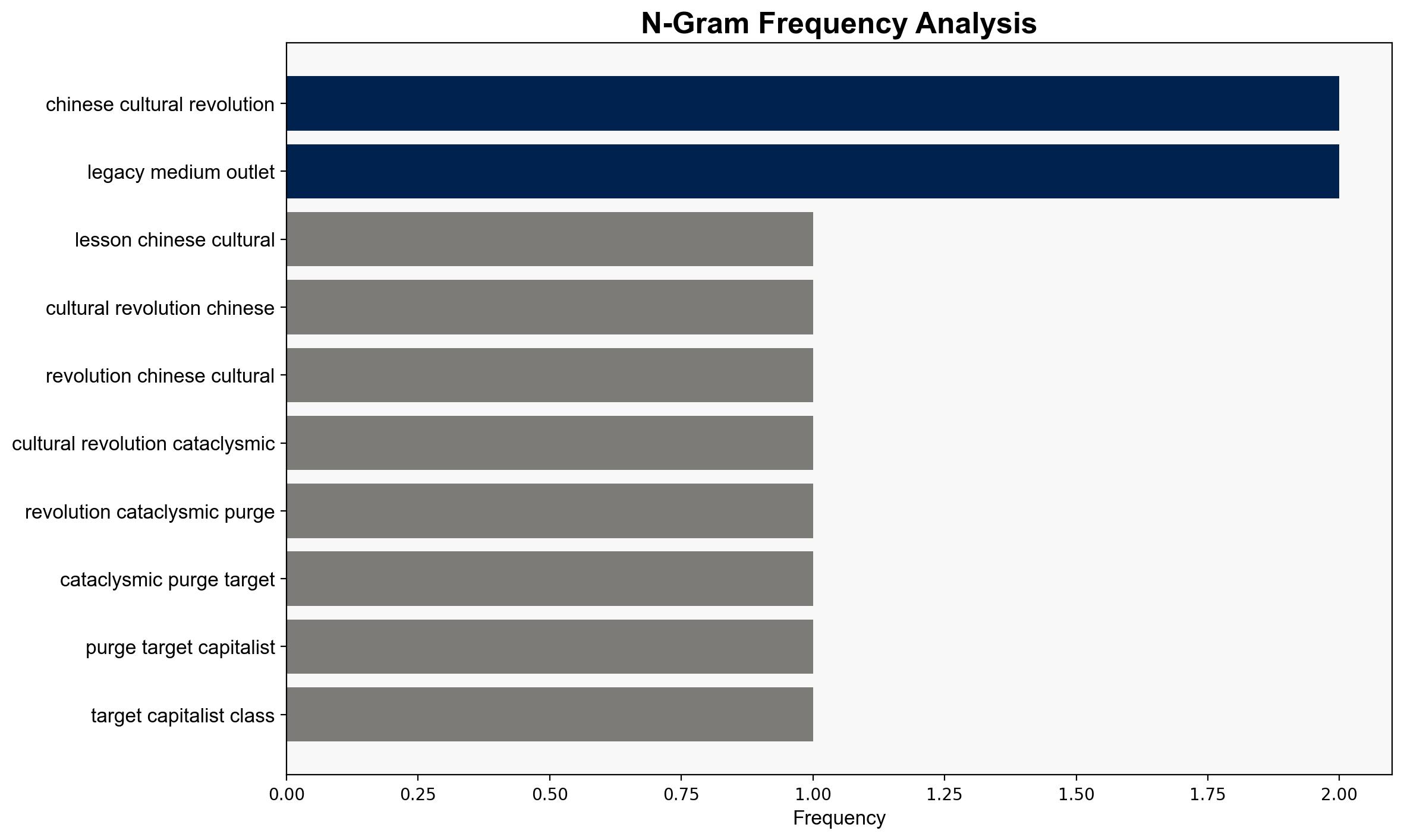Lessons from the Chinese Cultural Revolution – Americanthinker.com
Published on: 2025-09-30
Intelligence Report: Lessons from the Chinese Cultural Revolution – Americanthinker.com
1. BLUF (Bottom Line Up Front)
The analysis suggests a moderate confidence level in the hypothesis that current political rhetoric in the United States could lead to increased societal division and potential violence, mirroring aspects of the Chinese Cultural Revolution. The recommended action is to enhance dialogue across political divides and monitor extremist rhetoric to mitigate risks of escalation.
2. Competing Hypotheses
1. **Hypothesis A**: The rhetoric and actions of the Democratic Party and its affiliates are intentionally designed to create societal division similar to the Chinese Cultural Revolution, potentially leading to violence and systemic breakdown.
2. **Hypothesis B**: The parallels drawn between current U.S. political rhetoric and the Chinese Cultural Revolution are exaggerated and primarily serve as a rhetorical device to critique political opponents, with no substantial risk of similar societal upheaval.
Using the Analysis of Competing Hypotheses (ACH) 2.0, Hypothesis A is moderately supported due to observed increases in political polarization and incidents of violence. However, Hypothesis B cannot be dismissed, as historical and cultural differences between the U.S. and China may prevent a similar scale of conflict.
3. Key Assumptions and Red Flags
– **Assumptions**: Hypothesis A assumes that political rhetoric directly correlates with societal action, while Hypothesis B assumes cultural resilience against such rhetoric.
– **Red Flags**: The lack of empirical data linking rhetoric to large-scale violence is a significant gap. Potential cognitive bias includes confirmation bias in interpreting political actions as inherently malicious.
– **Deception Indicators**: The use of historical analogies may oversimplify complex political dynamics.
4. Implications and Strategic Risks
The primary risk is the potential normalization of violence as a political tool, leading to increased domestic terrorism and societal fragmentation. Economically, this could destabilize markets and reduce foreign investment. Geopolitically, it may weaken U.S. influence and embolden adversaries. Psychologically, it could erode public trust in democratic institutions.
5. Recommendations and Outlook
- Promote bipartisan initiatives to reduce political polarization and encourage civil discourse.
- Enhance monitoring of extremist rhetoric and potential threats through intelligence and law enforcement collaboration.
- Scenario Projections:
- **Best Case**: Political rhetoric de-escalates, leading to improved national unity.
- **Worst Case**: Rhetoric incites widespread violence, resulting in significant societal and economic disruption.
- **Most Likely**: Continued polarization with isolated incidents of violence and ongoing political tension.
6. Key Individuals and Entities
– Maxine Waters
– Kamala Harris
– Jesse Kelly
– Corey Comperatore
– Charlie Kirk
7. Thematic Tags
national security threats, political polarization, domestic terrorism, societal resilience




